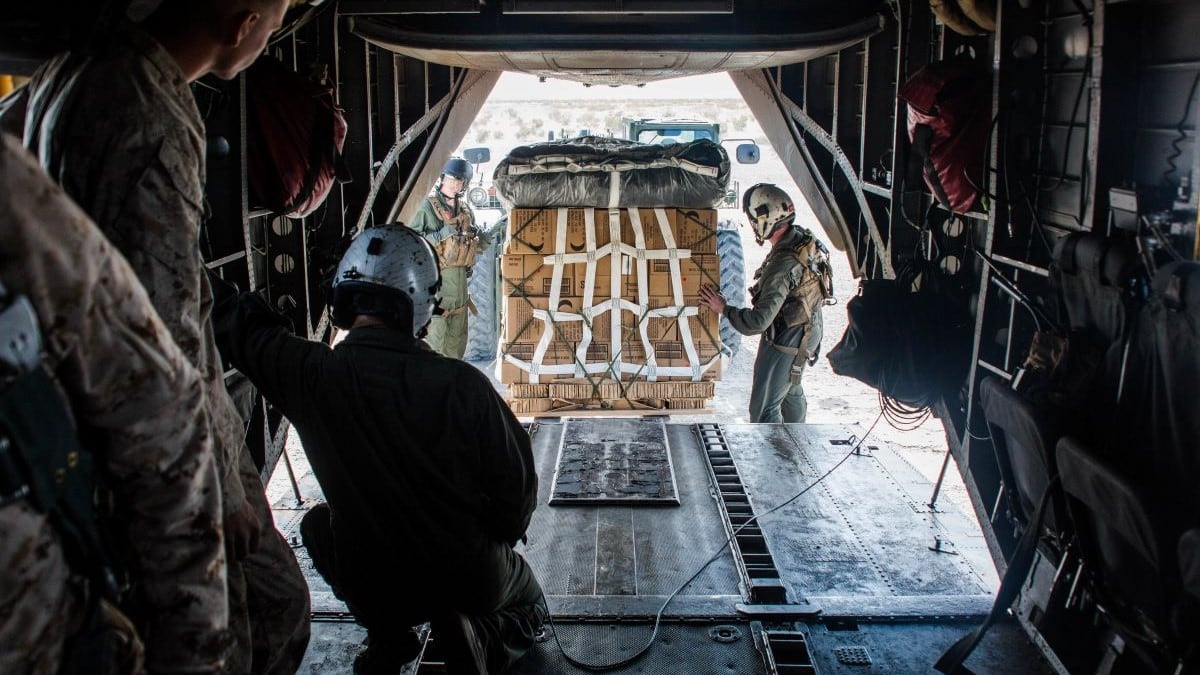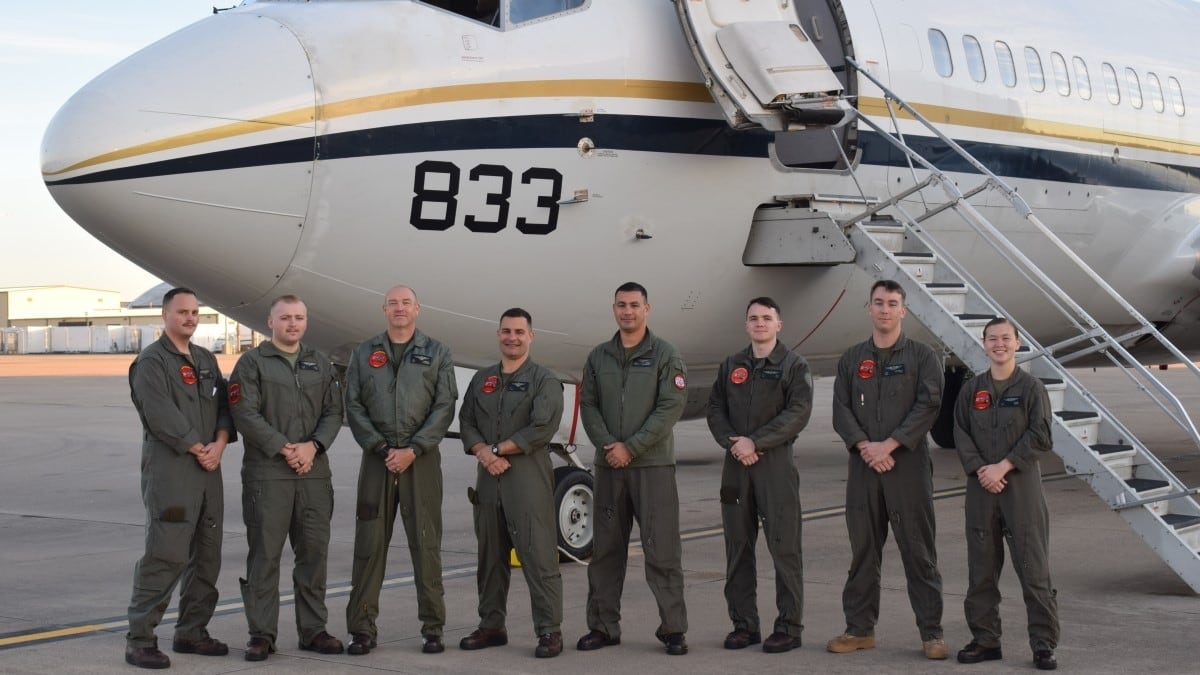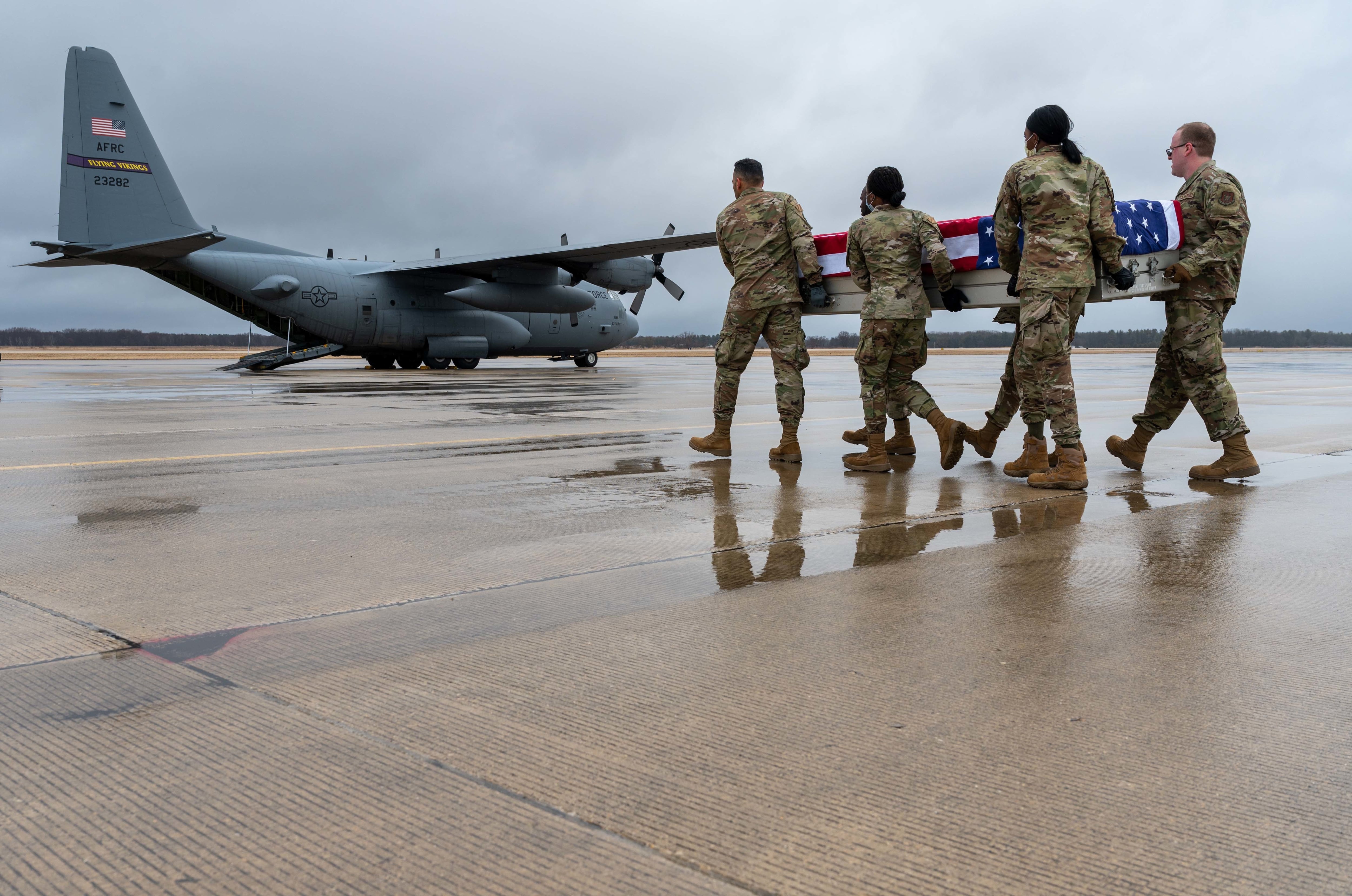The Marine Corps officially scrapped its scout sniper job and opened up jobs in logistics intelligence this fiscal year.
These are two of the biggest changes to the Marine Corps’ jobs as listed in the more than 1,000-page revised military occupational specialties manual, which is updated annually.
The Marine Corps created and cut only a few jobs, but the service made tweaks to the summary, requirements and prerequisites to many more jobs, according to a Marine administrative message Sept. 22.
Training Command leader Lt. Gen. Kevin Iiams approved the revisions June 9, though they officially were put in place Oct. 1 with the start of the new fiscal year, according to the message.
Here are some of the changes to Marines’ military occupational specialties.
Farewell to scout snipers
The scout sniper job is no more.
In February, the Marine Corps announced that it would scrap the infantry battalions’ elite scout sniper platoons, made up of Marines trained in both marksmanship and reconnaissance, in favor of reconnaissance-focused scout platoons.
Meanwhile, the Marine Corps now has sniper-qualified reconnaissance Marines, who provide reconnaissance teams “with a capability to precisely shape the operational environment through the delivery of precision direct fire.”
The former scout sniper platoons were an organic unit to infantry battalions, a Marine Reconnaissance spokesperson told Marine Corps Times in October. Reconnaissance battalions, in contrast, fall within the larger Marine divisions, and are focused on information-gathering.
The last class of new scout snipers graduated Dec. 15 but didn’t receive the military occupational specialty.
The change comes as the Corps is amping up its reconnaissance and counter-reconnaissance efforts as part of its Force Design 2030 transformation initiative.
The military occupational specialties manual provides more information about the required qualifications and training of reconnaissance snipers.
Reconnaissance snipers already must be reconnaissance Marines and expert riflemen with high mental and physical test scores, according to the manual. They must go through the Reconnaissance Sniper Course or, if they already have received sniper training via the Scout Sniper Basic Course, provide proof of having completed that course.
Reconnaissance Marines, sniper qualified, hold the military occupational specialty 0322 and may be of the ranks private through master gunnery sergeant.
Beefing up logistics intelligence
There’s a new military occupational specialty for logistics Marines who are experts in the intelligence side of logistics planning.
Logistics intelligence planners are officers and enlisted Marines who figure out what logistics elements need in terms of intelligence and integrate that intelligence into the Marine Corps’ increasingly complex logistics planning, according to the military occupational specialty manual.
These subject-matter experts must complete a course of study at Marine Corps Logistics and Operations Group and get approval from the group’s commander, according to the manual.
Now-retired Gen. David Berger, the Marine commandant until July, has taken to stressing the importance of “logistics, logistics, logistics.”
RELATED

The Corps has made clear through the release of planning documents and new doctrine that its logistics systems could come under attack in a future conflict. Logistics personnel have to rely on more sophisticated, less vulnerable methods to supply the force, in the view of Marine leadership.
The military occupational specialty, designated 0234, is open to the enlisted ranks of corporal through master sergeant and the officer ranks of second lieutenant through captain.
Pilots for recently acquired transport planes
The Marine Corps has a new job designation for pilots of a newly acquired plane.
The Corps in 2017 stopped flying its two C-9B Skytrain II transport aircraft because it was switching to a “newer, larger, more capable aircraft”: the Boeing C-40A Clipper.
The Clipper can move around personnel and cargo farther and faster than any of the Marine Corps’ other aircraft, according to a 2022 Corps news release.
The C-40 is envisioned to provide strategic lift capabilities organic to the Marine Corps, capable of transporting personnel and or cargo farther and faster than any other aircraft currently with the service.
Staff Sgt. Lauren Song, the Marine Corps’ first C-40 crew chief, described the aircraft as “a [Boeing] 737 that’s been converted to have a cargo door on the side of it so we can load and unload pallets of cargo in addition to passengers.”

It can carry 121 passengers, eight cargo pallets, or three cargo pallets and 70 passengers, according to the Navy, which has flown the C-40 since 2001.
The Marine Corps’ first of two C-40 Clippers was delivered to the Fort Worth, Texas-based Marine Transport Squadron 1 in May.
C-40 pilots already must have logged 500 hours on other fixed-wing aircraft and undertake Clipper-specific training, according to the military occupational specialties manual.
Second lieutenants through lieutenant colonels are eligible to be C-40A-qualified pilots, designated 7540.
Warrant officers taking care of the dead
There’s a new role for warrant officers — Marines who have spent several years in the enlisted ranks and now lead as technical specialists — in managing the solemn task of retrieving and caring for the dead.
Fatality management warrant officers will be responsible for “the search and recovery, processing, tentative identification, storage, interment, disinterment, and transportation of human remains and personal effects,” in both combat and non-combat environments, according to the manual.
The job is a primary military occupational specialty but available only for warrant officers in the Reserve, according to Marine spokesman Maj. Joshua Pena.
RELATED

They are required to take a course at the Joint Mortuary Affairs Center at Fort Gregg-Adams, Virginia, formerly known as Fort Lee.
Similar jobs already existed for commissioned officers and enlisted Marines.
The Marine Corps said in December 2022 the new warrant officer role was being established to “modernize” and “professionalize” the service’s mortuary affairs field.
The new job, designated as 0408, is open to Marines of the ranks of warrant officer through chief warrant officer 5.
Specific designations for judge advocates
Marine judge advocates are getting more specific official job designations.
Previously, the Marine Corps’ courtroom attorneys all had the same designation: judge advocate, or 4402, according to the 2022 list of jobs.
“Judge advocate” will still be lawyers’ primary military occupational specialty, according to the manual. But now, they also can hold the titles of victims legal counsel, litigator, senior litigator, supervisory litigator or expert litigator.
“These additions to the service’s legal field establish a professional roadmap for Marine staff judge advocates, while facilitating talent management and assignments to ensure that personnel are experienced, prepared, and qualified to handle offenses as defense counsel, victims’ legal counsel, trial counsel, and military judges,” Lt. Col. Nicholas Mannweiler, a spokesman for the Judge Advocate Division, said in an October statement to Marine Corps Times. “The Marine Corps values litigation experience and each of these positions plays a vital role in the military justice process.”
Victims legal counsel “provide advice, counseling, and legal representation to eligible individuals who are victims of sexual assault, domestic violence” and other alleged sex-related offenses.
Litigators are judge advocates who take on the Marine Corps’ “complex and high-profile cases,” according to the manual. Before holding that role, Marines must have at least two years of military justice experience.
Senior litigators, with at least four years’ military justice experience, “lead, mentor, and supervise judge advocates assigned as trial, defense, victims legal, and appellate counsel,” the manual states.
Supervisory litigators, who must possess at least six years’ experience, are a step above senior litigators. They supervise even senior litigators and “have the demonstrated skill and experience necessary to litigate and supervise the most complex and high-profile cases,” according to the manual.
Expert litigators “serve in the most senior military justice litigation billets.”
The Marine Corps formed the new jobs based on recommendations from a 2021 independent review commission on military sexual assault, defense secretary guidance and congressional requirements, according to Mannweiler.
Victims legal counsel, 4403, and litigator, 4450, are open to first lieutenants through colonels. Senior litigator, 4451, and supervisory litigator, 4452, are open to majors through colonels. Expert litigator, 4453, is open to lieutenant colonels through colonels.
Enlisted historians
Enlisted Marines with expertise in history can become official historians for the Corps.
The historian designation had been reserved for officers, according to the 2022 list of occupational specialties, but now it’s open to those in the enlisted ranks.
These Marines already must be assigned to or slated for Marine Corps historian billets, or for teaching posts at the U.S. Naval Academy or a similar institution, according to the manual. Duties of Marines in historian billets include researching and writing Corps history, and advising commanding officers on historical matters.
Enlisted Marines in historian billets can submit their credentials to the Marine Corps University’s history division and get assigned the specialty after a year in the role.
The historian military occupational specialty, 8878, is open to sergeants and up, with the possibility for Marines of lower ranks to secure waivers.
Irene Loewenson is a staff reporter for Marine Corps Times. She joined Military Times as an editorial fellow in August 2022. She is a graduate of Williams College, where she was the editor-in-chief of the student newspaper.




